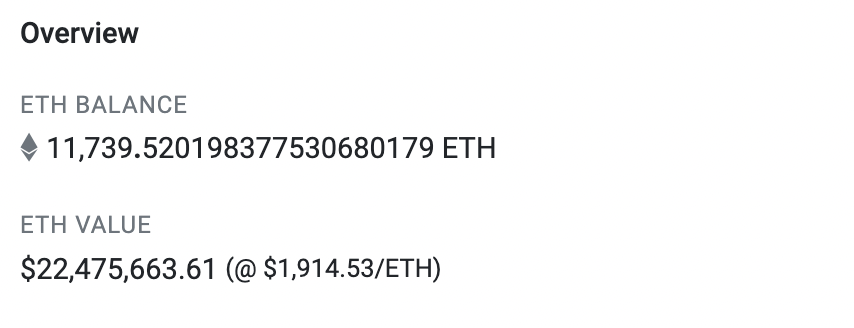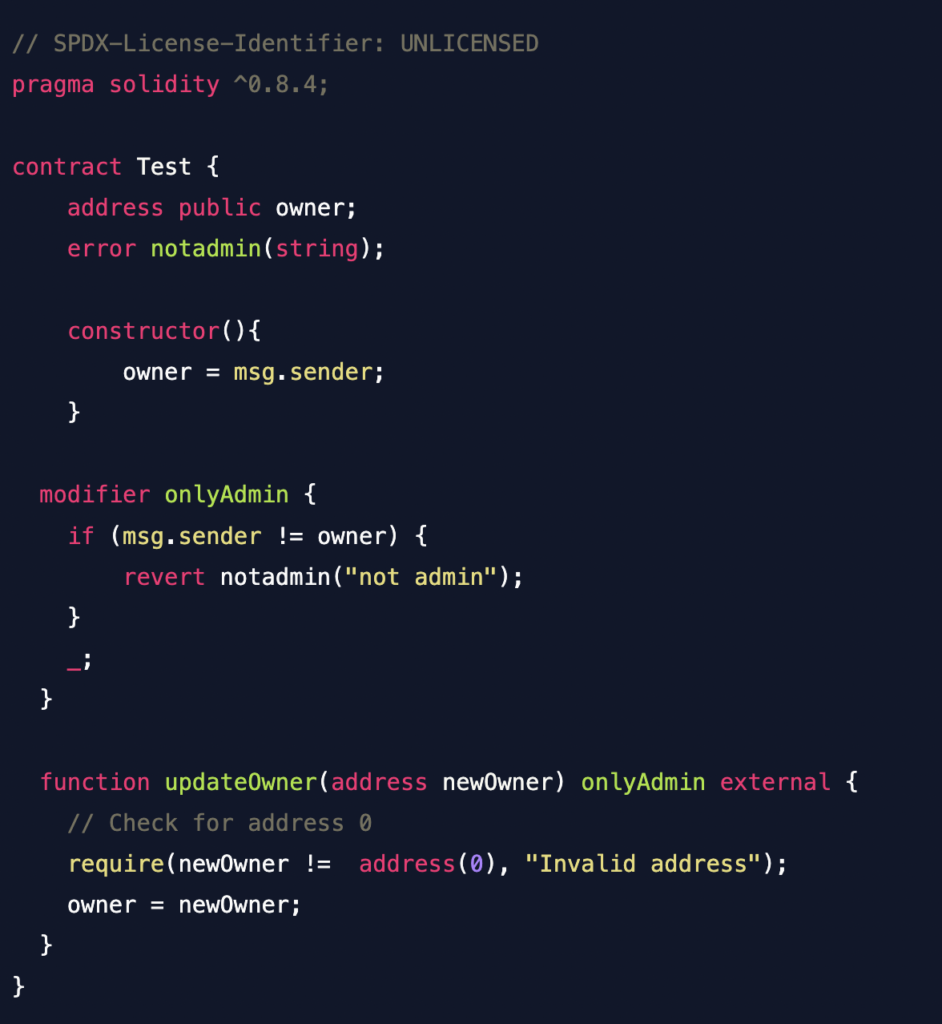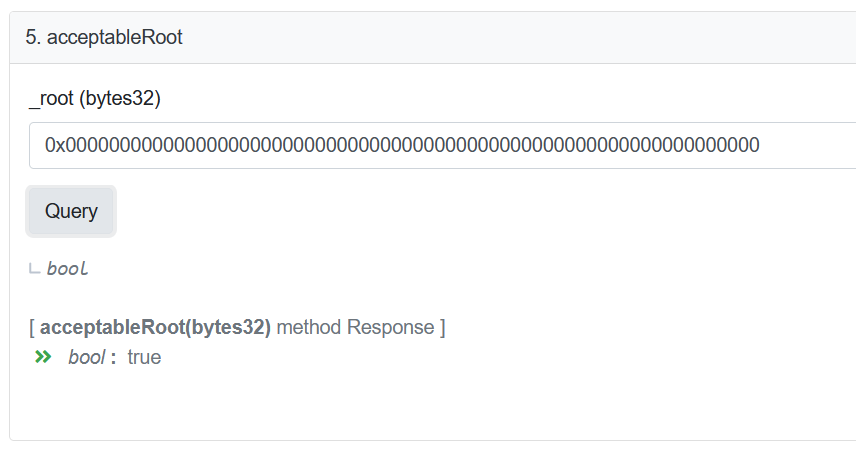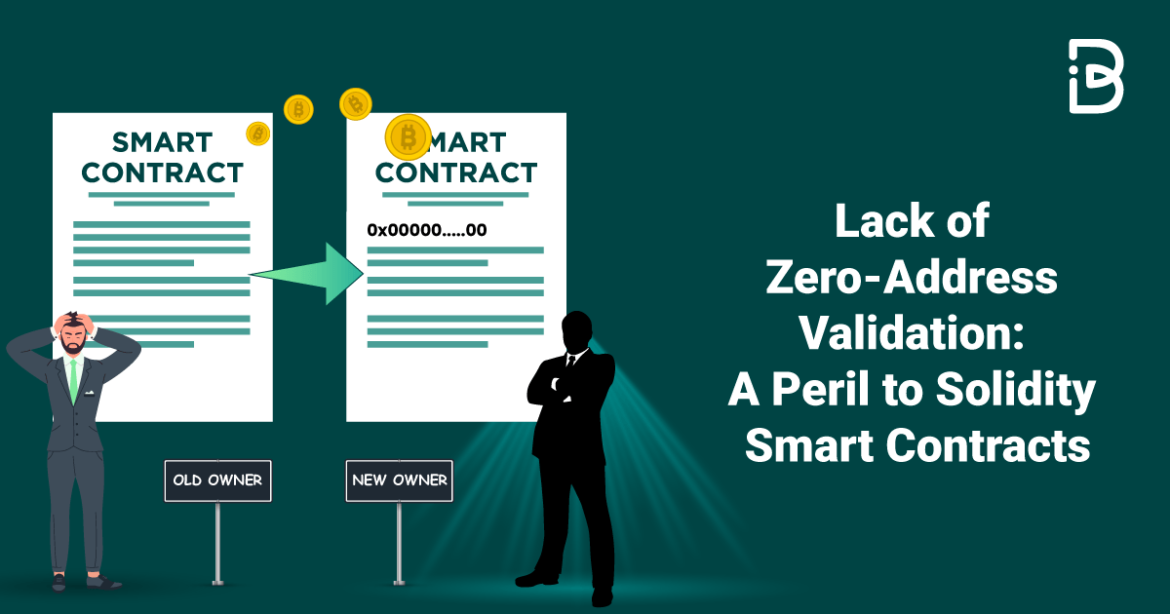Smart contracts, one of the pillars of blockchain technology were introduced to automate the execution of an agreement for all participants to be certain of the outcome, with zero interference from any intermediary or time loss. These utilities of smart contracts were useful enough to gain much traction in the digital asset space.
However, there were a few vulnerabilities surrounding smart contracts in the blockchain industry. Some of these were — Smart contract accessibility, security and various coding flaws one of them being – The lack of zero-address validation.

To address the following concerns smart contracts powered by the Solidity programming language were brought into the limelight.
Though Solidity was able to resolve the security and decentralization concerns, it too was not immune to vulnerabilities, with one of the major wrecking balls being – the lack of zero address validation.
In this article, our focus will be to delve into the importance of zero-address validation in Solidity smart contracts, its associated potential exploits, real-world hacks, and many more.
So let’s begin with widening our understanding of zero-address.
What is Zero-Address?
Table of Contents
In the context of Solidity, the zero address sometimes referred to as the null address is a special address representing a burned or uninitialised address.
It can be represented in two ways: 0x0 or 0x0000000000000000000000000000. This address has no private key, resulting in any non-recovery of any token deposited into the address.
Due to commonly mistaken validation of zero-address, there has been a humongous amount of loss of funds, which can never be recovered.

Whereas, a zero-address check is there to ensure that the used address is not a zero-address and the check is there to prevent funds from going into the 0 address.
To have a constantly evolving ecosystem, free from exploits developers must stay vigilant and prioritize robust security practices.
They need to incorporate measures like– accurate address validation, mitigating potential risks and smart contract protection from exploits.
Thus, without zero-address check smart contracts are a pitfall than a ladder to development.
Zero-Address Check: A Necessity
Zero-address check is a compulsion for solidity smart contracts, without this mandatory check, the blockchain can be attacked by various malicious activities. Here are some reasons why zero-address validation is crucial:
- Preventing Unintended Behavior: By validating addresses, including zero addresses, we can prevent unintended behavior and actions within the smart contract. Enabling interactions with zero addresses provides scope for potential vulnerabilities. Checking for zero addresses ensures only valid and intended actions take place within the contract.
- Mitigating Security Risks: Smart contracts are built to secure valuable assets. A lack of zero address checks might lead to security risks. For instance: An attacker could send tokens on purpose to the zero address, causing a loss of funds or manipulating the contract’s functionality.
- Safeguarding User Funds: In a decentralized space, users rely on the security and integrity of smart contracts to interact with their funds. If zero-address validation is not performed, users’ funds could be at risk of being sent to the zero address, effectively rendering them irretrievable. With zero address check transactions are destined to happen only between the concerned parties. Furthermore, in Solidity, the address zero is used as a placeholder for some types of data where address zero might help you in confirming that your contract is handling uninitialized data correctly.
- Compliance with Business Logic: Many smart contracts implement specific business logic and rules. By checking for zero addresses, we can enforce these rules and ensure that the contract operates within the intended framework. For example, a contract may have restrictions on certain operations or require a specific type of address for a transaction. By validating addresses, we can maintain compliance with the contract’s business logic and prevent unauthorized or undesired actions.
- Preventing Loss of Ownership: In the image inserted below, there’s a function ‘updateOwner’ utilized to change the owner. With the lack of address zero checks for the parameters, the contract owner will be bygone forever. Additionally, all other functions requiring the owner/admin to call will be reverted because of the change in ownership to address zero.

These were certain use cases of zero-address validation, but have you wondered about the consequences of ignoring zero-address checks? Let’s find out the scariest possibilities of the same.
There are multiple disadvantages which can result if zero-address validation is not performed in a Solidity smart contract. Let me make it easier by giving you an example:
So there’s a smart contract which is used to transfer tokens to other addresses. It includes an important function called the ‘transferTokens’ consisting of 2 parameters:
- The recipient’s address, and
- The number of tokens to transfer.
This contract has everything except for the zero address check i.e. there is no proof of the contract verifying if the recipient’s address is the zero address or not. (0x0000000000000000000000000000000000000000).
This might lead to potential exploits and unwanted consequences.
Talking of exploits
There might be a third-party invader who recognizes that there is no zero-address validation in the transferTokens function.
Now utilizing this opportunity the invader proceeds further to call the function and use zero-address as the recipient’s address which defines a specific amount of tokens to transfer.
With the lack of zero addresses check on the contract, the transaction is executed, and boom!! The tokens are transferred to the zero address.
Consequences
Due to this exploit now the malicious actor gets a green flag to effectively “burn” a substantial amount of tokens, making them permanently inaccessible and reducing the total supply.
This leads to severe financial implications, impacting the token’s value, utility, and the trust of token holders in the contract.
All these results in a massive functionality disruption of the contract and any associated decentralized applications relying on the token.
For example, if the token represents voting rights or governs certain platform functionalities, the loss of tokens due to the exploit can compromise the integrity and fairness of the system.
Before we get into the benefits of zero-address validation let’s have a look at an example to analyse what happens when zero-address validation is conducted properly:
Example
Consider a dApp enabling users to participate in a crowdfunding campaign by contributing Ether to a smart contract.
The smart contract has a function – contribute that takes the sender’s address as a parameter. Here, the smart contract consists of a zero-address validation check before accepting the contribution.
Now let’s see how things unfold, by having a look a the validation process followed by its consequences.
Validation Process:
Before accepting the contribution, the smart contract checks if the sender’s address is the zero address (0x0000000000000000000000000000000000000000).
If that’s the case, the contract rejects the contribution and throws an exception or reverts the transaction.
This results in –
- Secure contribution process: Only valid addresses are allowed to contribute to the crowdfunding campaign. If a user accidentally provides the zero address as their sender address, the contract rejects the contribution, preventing any unintended consequences or loss of funds.
- Protection against exploits: Zero-address validation acts as a safeguard against potential exploits. Malicious actors attempting to manipulate the contract by exploiting the absence of zero-address checks will be thwarted, as their contributions will be rejected.
- Preserving contract integrity: Validating and rejecting zero addresses ensures that the contract operates within its intended framework. By enforcing this validation, the contract maintains compliance with its business logic and prevents unauthorized actions or disruptions to the crowdfunding campaign.
Zero-Address Validation Benefits
- Zero-address checks ensure the security and integrity of the contract.
- It safeguards against unauthorized contributions, protects against potential exploits, and maintains compliance with the contract’s intended behaviour.
- With this validation, developers can enhance the reliability of their smart contracts, providing a secure environment for participants to interact with the contract’s functionalities.
Real-World Examples of Lack of Zero-Address Validation Hack
The Nomad Bridge attack which led to a loss of $190M of liquidity to the crypto market was due to a lack of zero-address validation.

Nomad is an interoperability protocol providing users and developers with secure cross-chain communication to interact securely in a multi-chain world. Whereas, a cross-chain bridge is there to allow the transfer of information, cryptocurrency or NFTs from one blockchain network to another. Nomad is one big example of a cross-chain bridge.
As explained by @samczsun in a Twitter thread, the Nomad Bridge contracts showed no signs of a potential bug. However, there did exist a fatal flaw in the ‘Replica’ contract that allowed a 0x0 address as an acceptable root node in the tree to which funds could be sent.

It turns out that during a routine upgrade, the Nomad team initialized the trusted root to be 0x00. Thus, to save it from the impact, all you had to do was change the actual address to a zero- address and drain the network of as many funds as you like!
How to Check for Zero-Address in Your Contract?
There is an iszero function introduced in the Solidity version 0.8.0 which can be used to return a boolean reflecting whether an address is a zero address.

The same thing can also be done with the help of the equality operator (==) and the zero address literal:

There are various methods which the developers can incorporate to efficiently check for zero addresses in Solidity smart contracts:
- Non-Zero Addresses Requirement: One straightforward way to check for zero addresses is by using the required statement in Solidity. With a requirement that the address is not equal to the zero address, the contract ensures that only non-zero addresses are accepted.
Example:
Function transferTokens(address recipient, uint amount) public { require(recipient != address(0), “Invalid recipient address”); // Rest of the transfer logic }

- Usage of Inline Assembly: Inline assembly in Solidity allows developers to write low-level code, such as address manipulation. Developers can use it efficiently to compare the provided address with the zero address and take appropriate actions based on the result.
Example:
Function validateAddress(address addr) internal pure returns (bool) { bool isZeroAddress; assembly { isZeroAddress := iszero(addr) } return !isZeroAddress; }
- Utilizing External Libraries: The external libraries are available in the Ethereum ecosystem providing utility functions for address validation, including zero-address checks. These libraries have been thoroughly tested and optimized, making them a seamless and efficient option for incorporating zero-address validation into smart contracts. Importing and utilizing these libraries can save development time and ensure consistent and reliable validation.
Example (using OpenZeppelin’s Address library):
Import “@openzeppelin/contracts/utils/Address.sol”; function validateAddress(address addr) internal pure returns (bool) { return !Address.isZeroAddress(addr); }
By implementing these efficient approaches, developers can perform zero-address checks effectively in their Solidity smart contracts.
Takeaway
Zero-address validation is an essential aspect of Solidity smart contract development that should be considered as an important aspect in Solidity smart contracts.
By implementing efficient address checks, developers can enhance security, prevent unintended consequences, and protect against losses.
Hence, we have seen how by properly validating zero addresses the developers can enhance the security and reliability of smart contracts, reducing the risk of potential exploits and ensuring the integrity of contract operations.
So, now is the time for you to make the right choice by picking any method that best suits the specific contract requirements to secure smart contracts in the evolving blockchain.

